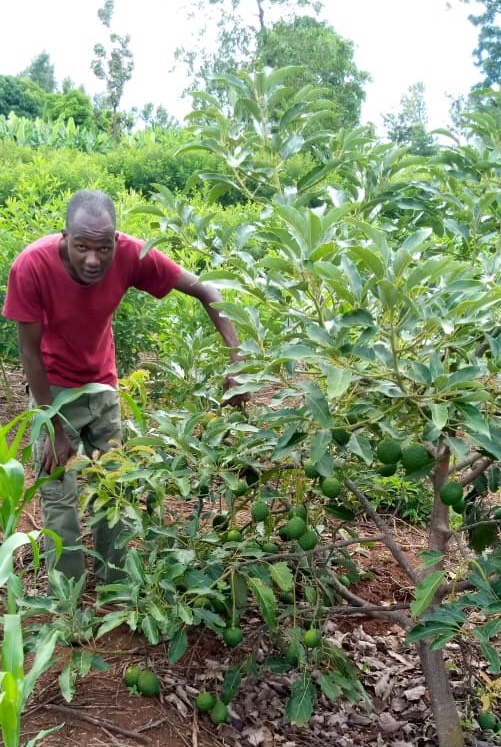Kenya’s farmers and produce dealers are looking to social media and farm-based sales to bridge the production and market gaps in the wake of the COVID-19 pandemic.
The farmers are hoping to curb postharvest losses for fresh produce and improve their ability to acquire key agricultural inputs like fertilizer during the outbreak, which has prompted the cessation of cross-country travels, hampering market access for smallholder farmers and roadside traders.
“Social media motivated me to start my business, as 80 percent of my customers have access to the internet,” Nancy Kwamboka, a mother of two and broadcast professional, told the Alliance for Science. “They place orders and I deliver. Before coronavirus, this idea was not refined. But as demand for home deliveries escalated, I stepped in to help my fellow mothers to access food.”
Japhet Mutugi, a 32-year-old farmer in Ntharene Meru County, has begun selling directly to consumers, using his social media platforms to communicate with other farmers and market his produce.
“The curfew hours and lockdown have hit the fresh vegetable farmers hard,” he said, explaining that vegetables are typically sold in the evening due to hot daytime temperatures that wilt the produce.
“Since this pandemic is new to everyone, we are trying to cope with its effects and with the closure of market days in Meru County,” Mutugi said. “Most of the farmers are confused. The good thing is that our regular customers have decided to come directly to our farms to buy produce, such as bananas, maize, avocados, thorn melon and pumpkins. This has reduced overcrowding [at stores] since we deal with one or two buyers at a go.”

Mutugi has found the sales to be profitable, noting that he was able to sell his bananas at the same price they fetched at market before the pandemic hit.
“As we progress, the major problem now is the transport of our products to the city,” he observed. “These days only two or three lorries pass by.”
As a result, farmers now rely on the inhabitants of the town to buy their produce, Mutugi said. They’ve also seen a shift in commodity preference, with people buying basic vegetables, such as onions, and holding off on higher-priced items due to economic uncertainty.
Kwamboka said she is hearing “from my fellow mothers how their elongated stay with family at home means food consumption is high.’’ They’re also grappling with higher prices in the shops because vehicles that transport produce from the farms are not operating at their previous capacity.
Mutugi said farmers also have been adversely affected because the government adopted policies without consulting them. For instance, farmers should be registered and given identification cards that allow them to access markets without being harassed by the police, he said
President Kenyatta, meanwhile, reassured citizens that ‘‘the movement of food supplies will continue normally” and encouraged farmers and traders to continue with their agricultural activities.
Still, Kennedy Oyugi, an agricultural economist with Techforum Agricultural and Economic Consultants, said the coronavirus disruption is likely to negatively affect food security in both the short and medium term.
“The curfew has drastically limited the market for farm produce because buyers can’t go to distant markets and sellers can’t go to look for better markets far away; they have to be back to their homes before 7 pm,” he said.
Any moves that limit the number of working hours also spill over into farming, Oyugi noted.
Reduced revenues may make it difficult for farmers to buy inputs like fertilizers and improved seeds, he said. In response, Oyugi said, the government should consider subsidizing the cost of inputs or donating them outright. Farmers also need to have these materials brought to them so they don’t risk contracting or transmitting COVID-19 as they travel to obtain supplies.
‘‘The net effect is likely to be a high rise in price in consumption areas such as towns and non-agricultural geographies, mostly due to panic buying and reduced supply, and relatively lower prices in production/farming areas due to limited movement of goods and buyers,’’ Oyugi predicted.
Despite the challenges, Mutugi said he’s continuing to cultivate his crops as usual.
“A farmer works so that the world can eat even in time of crisis,’’ he said.
